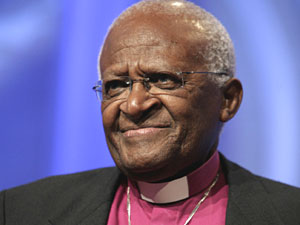Obama Wimping Out on Special Prosecutor?
Despite inheriting a host of crises from former President George W. Bush (image below, right), President Barack Obama (image below left) has hit the ground running.
He’s taking decisive steps on a whole host of issues, including a hefty Stimulus package and “bail outs” for the auto industry to boost the economy. He’s m
outs” for the auto industry to boost the economy. He’s m oved to close Guantanamo, and he’s taking strong positions on education, climate change, health care, energy, Social Security, Iran, Korea, the Middle East and Russia – and a host of other issues.
oved to close Guantanamo, and he’s taking strong positions on education, climate change, health care, energy, Social Security, Iran, Korea, the Middle East and Russia – and a host of other issues.
But, even as President Obama attempts to maintain a level of bi-partisanship with a recalcitrant Republican minority, is he wimping out by failing to support calls for a special prosecutor to delve into the alleged illegal actions of the Bush Administration?
It’s commendable that President Obama is making gargantuan efforts to avoid the Bush Administration’s steamroller strategy, including Senate threats of using the “nuclear option,” but the president is not required to be so accommodating as to turn a blind eye toward alleged illegal actions of the previous administration.
The United States still operates under the U.S. Constitution and the rule of law, not under political accommodation. If the president is fearful of the inevitable political backlash of the Republican Party, he should remember his oath of office that requires him to “preserve, protect and defend the Constitution of the United States.”
John Conyers, House Judiciary Committee Chairman’s call for a special prosecutor to conduct a criminal inquiry into Bush Administration policies such as “enhanced interrogation techniques” used on alleged terrorist detainees. Such techniques amount to torture and violate both federal and international laws against torture.
Republicans, of course, oppose any such inquiry and the Democratic leadership apparently are more fearful of a probable backlash by voters in the 2010 congressional elections than of seeking accountability and justice for wrongdoings.
Conyers, a Michigan Democrat, recommended the inquiry to Attorney General Eric Holder on April 2, following up on an earlier report. In addition to “enhanced interrogation,” his report specifically cites extraordinary rendition and warrantless domestic surveillance and “firmly rejects the notion that we should move on from these matters.”
Patrick Leahy, D-Vt., Senate Judiciary Committee chairman, blamed the refusal of Republicans to act in a non-partisan way for the apparent demise of his proposed “truth commission” that was intended to look into the alleged abuses of the Bush administration, including the former president’s “expansive claims” to executive powers.
On another issue, Obama is at risk of squandering the goodwill he says the U.S. presidential election generated, according to Archbishop Desmond Tutu of South Africa (image, below.)
"It would be wonderful,” said Tutu, “if the U.S. president could apologize for the U.S.-led invasion of Iraq on behalf of the American people."
While urging Obama to “come down hard” on African dictators, Bishop Tutu also called for quick action by Obama and Secretary of State Hillary Clinton in reaching out to other countries to build bridges with them and to listen to what they say.
Obama's maiden trip to Europe that encompassede England, France, Germany and the Czech Republic, represents a major first step toward reversing the enmity of Europe and many parts of the world that developede as a result of Bush Administration policies. In addition, the media now may cover the return of a U.S. airman killed overseas -- a result of the Obama Administration's reversal of an 18-year ban on news coverage of America's returning war dead.
Meanwhile, the president’s plan to send an additional 17,000 troops to Afghanistan, often called "a graveyard of empires," is also a questionable move. Expanding the war in Afghanistan, as well as Pakistan, could lead to the kind of quagmire we experienced in Vietnam. Perhaps President Obama should discuss this issue more extensively with the British and the Soviet Union who found Afghanistan impossible to conquer – as did a few earlier empires. Perhaps he would be wise to give further thought to the idea of expanding the war in the hope of pulling out a military victory. President Lyndon Johnson in Vietnam and President George W. Bush in Iraq fell into that trap. Perhaps other, better ways, can be found to combat the threats of Al Qaida and the Taliban.

No comments:
Post a Comment